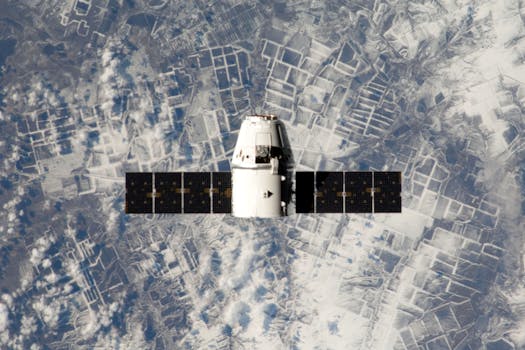The Future of Satellites: Revolutionizing Global Connectivity

The Future of Satellites: Revolutionizing Global Connectivity
The future of satellites is poised to revolutionize global connectivity, enabling faster and more reliable communication, navigation, and remote sensing. With advancements in space technology, satellites are becoming increasingly important for various industries and applications. The use of satellites has been steadily increasing over the years, with more countries and companies launching their own satellites to provide a range of services, including telecommunications, navigation, and Earth observation.
Satellites have been a crucial part of modern technology for decades, providing a range of services that are essential for daily life. From enabling global communication and navigation to monitoring the environment and predicting weather patterns, satellites play a vital role in many areas. The future of satellites is expected to be even more exciting, with new technologies and innovations being developed to improve their capabilities and expand their applications.
One of the most significant advancements in satellite technology is the development of small satellites, also known as CubeSats. These tiny satellites are approximately the size of a shoebox and weigh only a few kilograms, making them much cheaper and easier to launch than traditional satellites. Small satellites are being used for a range of applications, including Earth observation, communication, and scientific research.
Another area of innovation in satellite technology is the development of satellite constellations. A satellite constellation is a group of satellites that work together to provide a service, such as global communication or navigation. Satellite constellations are being developed by several companies, including SpaceX and OneWeb, to provide high-speed internet access to remote and underserved communities around the world. These constellations have the potential to revolutionize global connectivity, enabling people in remote areas to access the internet and other communication services.
The use of satellites is also becoming increasingly important for environmental monitoring and protection. Satellites are being used to monitor deforestation, track ocean health, and predict weather patterns. They are also being used to study the effects of climate change and to develop strategies for mitigating its impacts. The European Space Agency’s (ESA) Climate Change Initiative, for example, uses satellites to monitor sea level rise, glacier melting, and other indicators of climate change.
In addition to their practical applications, satellites are also being used to advance our understanding of the universe. Space agencies and private companies are launching satellites to study the cosmos, including the search for dark matter and dark energy. The Square Kilometre Array (SKA) telescope, for example, is a next-generation radio telescope that will use satellites to study the universe in unprecedented detail. The SKA will be able to detect faint signals from distant galaxies and study the formation of stars and galaxies in the early universe.
The future of satellites is also likely to be shaped by advancements in artificial intelligence (AI) and machine learning (ML). Satellites are being equipped with AI and ML algorithms to analyze the vast amounts of data they collect, enabling them to make decisions and take actions autonomously. This could lead to significant improvements in the efficiency and effectiveness of satellite operations, as well as the development of new applications and services.
In conclusion, the future of satellites is poised to revolutionize global connectivity, enabling faster and more reliable communication, navigation, and remote sensing. With advancements in space technology, satellites are becoming increasingly important for various industries and applications. From small satellites and satellite constellations to environmental monitoring and the search for dark matter, the possibilities are endless. As we continue to push the boundaries of what is possible with satellites, we can expect to see significant improvements in our daily lives and a deeper understanding of the universe.





